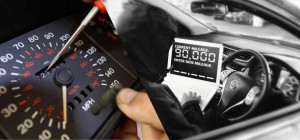 Buying a new car is usually a good investment if it proves useful for you, for your family or for other activities. Before choosing the right car it just takes a little research and planning so you can decide whether a new car is what you really need, lease or buy a new vehicle or maybe buy a second-hand car.
Buying a new car is usually a good investment if it proves useful for you, for your family or for other activities. Before choosing the right car it just takes a little research and planning so you can decide whether a new car is what you really need, lease or buy a new vehicle or maybe buy a second-hand car.
Think practically about your needs on the first hand. Below are some general aspects you may want to consider before investing your hard-earned money:
- Which is your budget? Can you estimate the expenses and stick to the available budget?
- How many passengers will you carry?
- Do you need a four-wheel or a two-wheel drive? In case you drive in winter, off-road or on slippery surfaces a 4×4 is recommended.
- Will you tow?
- Think about the cargo capacity.
- Where will you park it? If you have a garage or a dedicated parking place then you don't have to worry about the car's volume.
- Will you use the car for long commutes? If so, you need to consider the average MPG for the car if fuel economy is important for you.
- Which safety characteristics are important for you?
These being said, let's have a more in-depth view
1. The first step is to have an overall analysis of the market. If you are not focused on a specific model or brand, you might consider other cars in the class to ascertain you haven't missed other better opportunities (possibly for even less money).
2. The second step when buying a new car is to set a budget. Think about financing your investment or leasing, as these are the most recommended options when buying a new vehicle. How much money can you allocate for the monthly payment? As a general rule, it is not recommended to allocate more than 20% of the total monthly income for paying the instalments. However, best is to pay with cash but not many folks can afford to disburse such a big amount in a flash.
Buying a car with money down vs. leasing has some advantages: you can sell the car whenever you want, you don't have to care about mileage penalties, the total amount paid is lower.
3. Remember the costs of car ownership. Some vehicles may depreciate faster than others so if you think about re-selling it, go for a car that depreciates among the least. This article it a good start (http://www.telegraph.co.uk/motoring/picturegalleries/9171166/Top-20-cars-that-depreciate-the-least.html). Car ownership expenses also suppose the insurance fees, fuel and maintenance costs that are obviously higher for top-class vehicles such as BMW, Mercedes, Lexus, etc. (Here you can find images with different car brands.)
4. When you plan to buy a new car, go for a reliable dealership and set a test drive appointment if possible. Evaluate the car under different conditions and types of roads such as highways, national roads, stop-and-go traffic and focus on the driving experience without getting distracted by other factors such as the music radio. It is very important that you hear the engine and the sound system afterwards. Also, I would recommend you don't just stay in the driver seat but test the backseats too so you know if they are confortable for passengers.
Remember that no car is perfect. So, after test-driving several cars, consider the advantages and disadvantages of the tested models and also let your heart "speak" when making the final decision. Be confident that you've just made a great choice!
5. The last step is to talk with the dealer and understand which is the most appropriate financing solution: leasing or money-down.
By following the advice in this article, I am sure you will make a good choice and enjoy your dream-car years from now.







